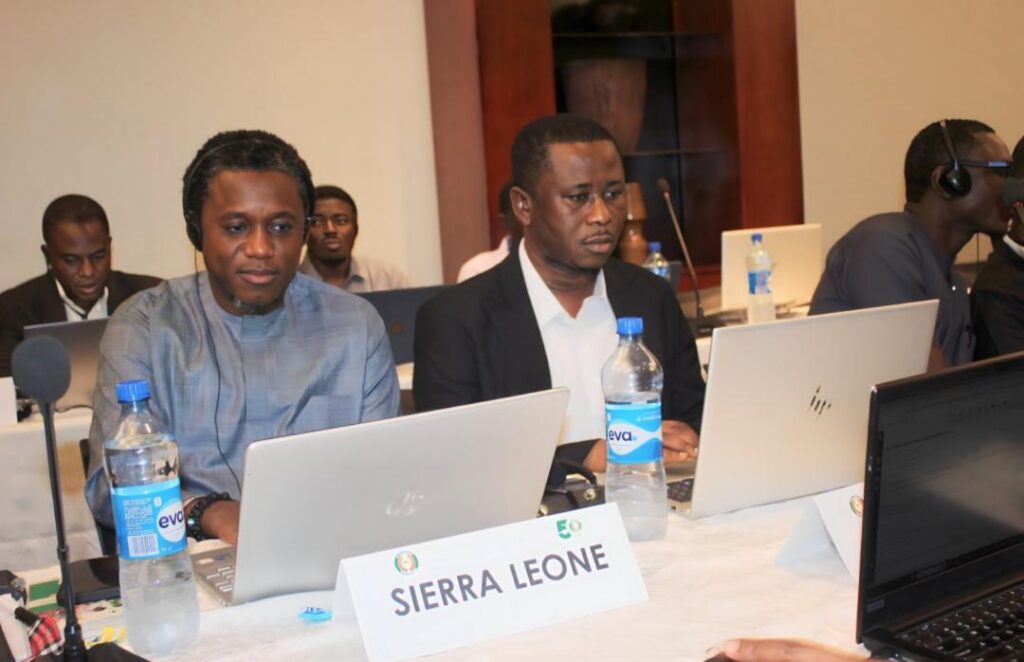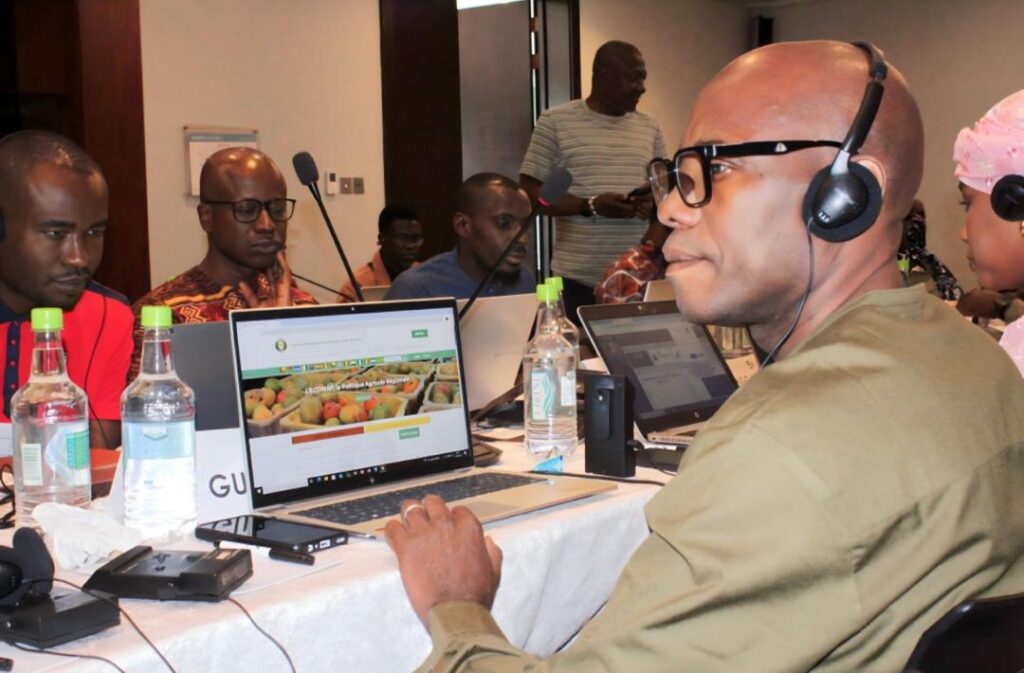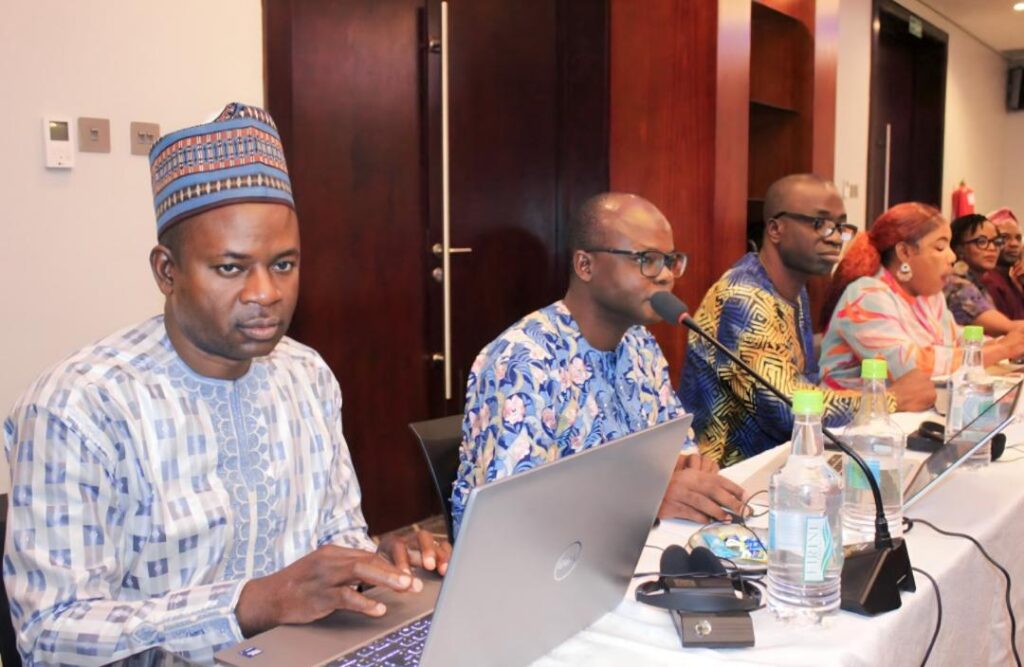ECOWAS Champions Data-Driven Agriculture: Fifth Biennial Review Workshop Sets New Benchmark for CAADP-Aligned Transformation.
By Raymond Enoch
In a decisive step toward enhancing evidence-based policymaking and agricultural transformation across West Africa, the Economic Community of West African States (ECOWAS) concluded its Fifth Biennial Review (BR5) Data Cleaning and Gap Management Workshop. The high-level event, held from June 23 to 27, 2025, in Lagos, Nigeria, brought together a cross-section of regional experts, national stakeholders, Monitoring & Evaluation professionals, statisticians, and data managers from across the ECOWAS Member States.

Organized under the Directorate of Agriculture and Rural Development (DARD), the five-day hybrid workshop served as a cornerstone of the region’s preparation for the 2025 Comprehensive Africa Agriculture Development Programme (CAADP) Biennial Review. The gathering focused on refining, harmonizing, and validating agricultural data to align with ECOWAP — the CC regional agricultural policy of ECOWAS — and the continental CAADP agenda spearheaded by the African Union.
The workshop opened with strong endorsements from ECOWAS and Nigerian officials. Mr. Alain Sy Traore, Director of Agriculture and Rural Development, emphasized in his opening remarks the urgency and strategic importance of reliable data in driving agricultural transformation across West Africa.

“We cannot transform agriculture without transforming our data systems,” Mr. Traore said. “Data is the bedrock of planning, monitoring, and accountability.”
Dr. Olorunmola, representing Nigeria’s Federal Ministry of Agriculture and Food Security, welcomed delegates and reaffirmed Nigeria’s commitment to regional integration and evidence-driven policy planning.
The workshop undertook a detailed review of the BR5 data processes, focusing on the status of reporting, data completeness, and alignment with seven CAADP commitment themes — including investment finance, resilience, and ending hunger.

Guided by Mrs. Fatmata Seiwoh, Programme Officer for ECOWAP/CAADP M&E at DARD, the sessions combined technical discussions, presentations, and country-led peer learning. National teams collaborated to identify persistent data gaps, analyze the root causes, and update datasets in real-time.
Particular attention was given to learning from countries with more mature data ecosystems. Their experience served as a blueprint for others aiming to streamline agricultural reporting and improve interoperability between national and regional systems.
“Sharing experiences helped us realize we’re not alone in these challenges,” noted one participant from Guinea. “But more importantly, it showed us that practical, context-specific solutions are within reach.”
The workshop’s highlight was an interactive orientation session on the ECOWAP Monitoring, Evaluation, Accountability and Learning System (MEALS) and the electronic Biennial Review (eBR) platform. Facilitated by Mr. Oluwafemi Gbenga Bamidele, ECOWAP Web Administrator, and Mr. Babacar Ceesay from AKADEMIYA2063, participants were trained on the platforms’ functionalities — including data entry, validation, and synchronization across systems.
The session offered hands-on experience, empowering national teams to upload, clean, and verify their own datasets within the MEALS environment, thereby enhancing consistency and reducing duplication.
“The digital tools demonstrated the future of agricultural monitoring,” said Mr. Bamidele. “It’s not just about collecting data — it’s about creating a robust digital ecosystem that informs real-time decision-making.”
The workshop culminated in the development of a draft roadmap for final data submissions, incorporating timelines, country-specific action plans, and frameworks for continued technical support. One of the key takeaways was the establishment of a technical Community of Practice — a knowledge-sharing forum to support national stakeholders beyond the workshop.
Participants departed with improved datasets, greater clarity on CAADP reporting expectations, and a renewed sense of urgency about the role of data in policy transformation.
“The progress we’ve made here is substantial,” said Mrs. Seiwoh. “But the real work begins when we return to our countries and operationalize what we’ve learned.”
Beyond technical achievements, the BR5 Data Cleaning and Gap Management Workshop reaffirmed ECOWAS’ broader commitment to digital transformation and regional accountability. With the 2025 CAADP Biennial Review on the horizon, the region is now better positioned to present a cohesive, data-driven narrative to the African Union — one that reflects both progress and the shared challenges of West Africa’s agricultural journey.
As Mr. Traore aptly concluded, “This workshop marks a milestone. We are not just cleaning data; we are building the foundation for a more food-secure, prosperous, and sustainable West Africa.”








